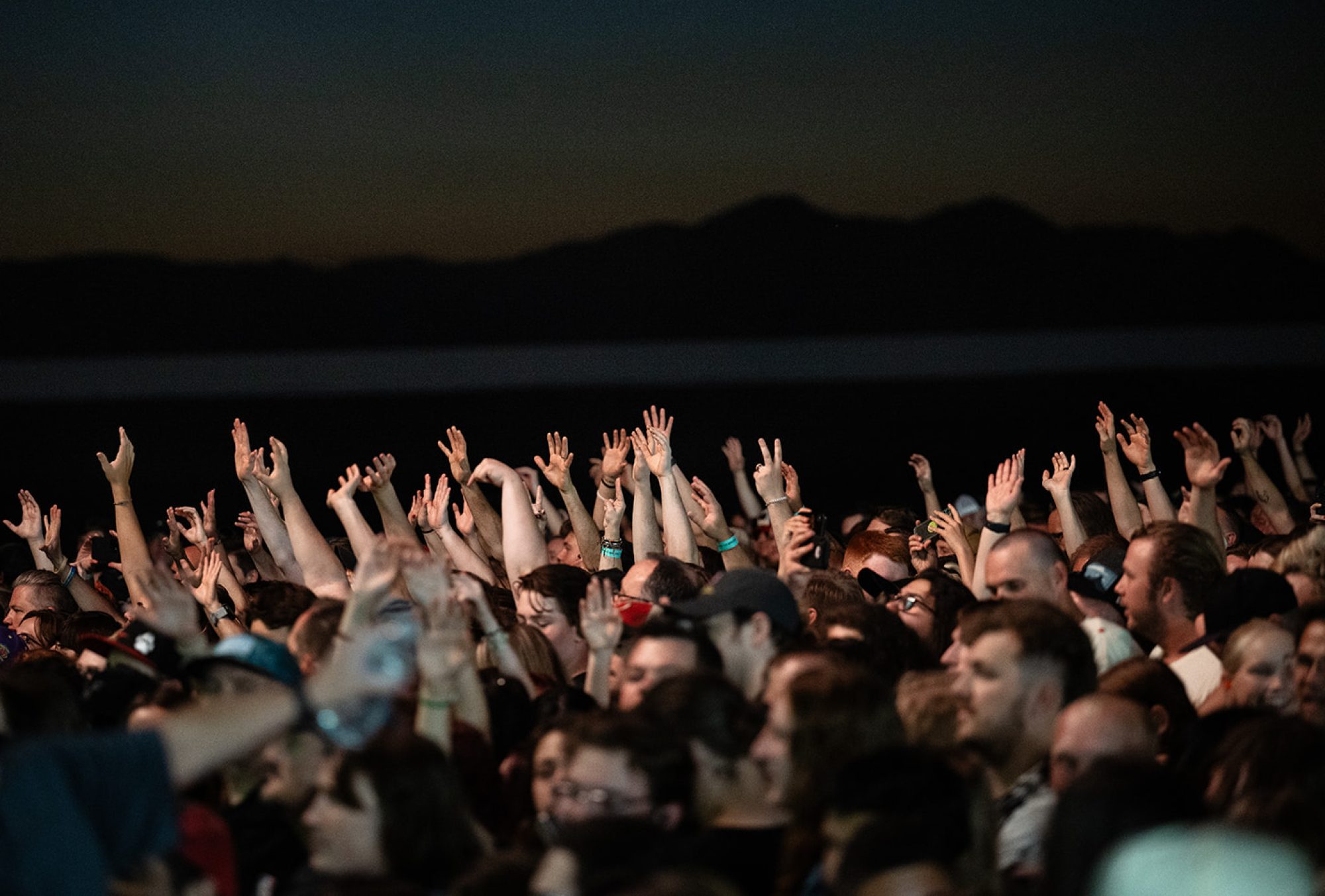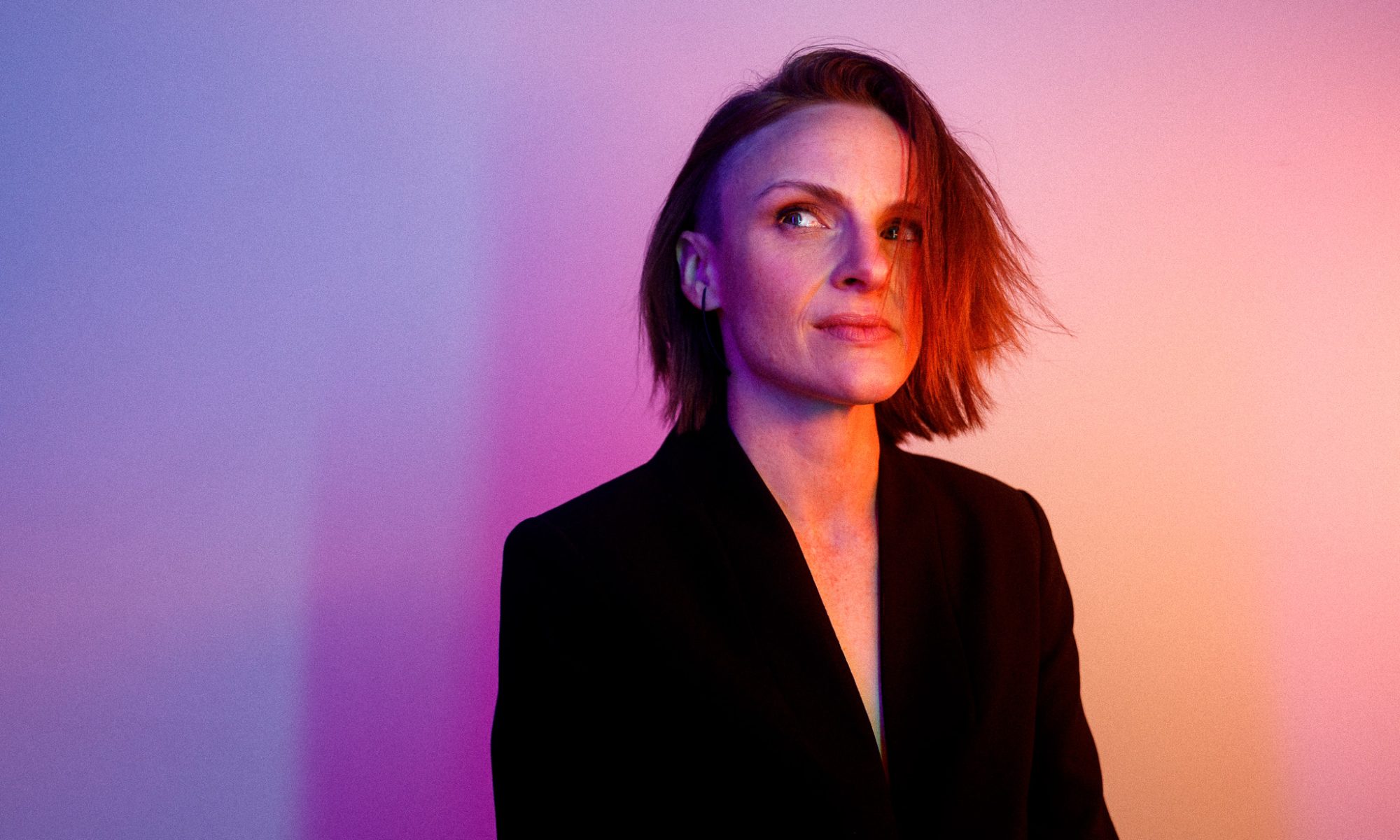UCR Interview • Debra Fotheringham
Interviewed by Kevin Rolfe
We here at Utah Concert Review have been Debra Fotheringham fans for quite some time. Most of our history with Debra and her music has been seeing her perform as one of the many singers in the Salt Lake City-based Americana supergroup, The Lower Lights. Despite the multitude of vocalists in that group, Debra stands out every time we’ve seen her.
Debra has released three solo albums. With her last LP, The Darkness and The Sun, being released in 2017, there has been much anticipation for a fourth album. Well, the wait is finally over. On Oct 24, 2025, Debra Fotheringham will be releasing her fourth album, Valley of Annihilation. Here is some information about the upcoming album…
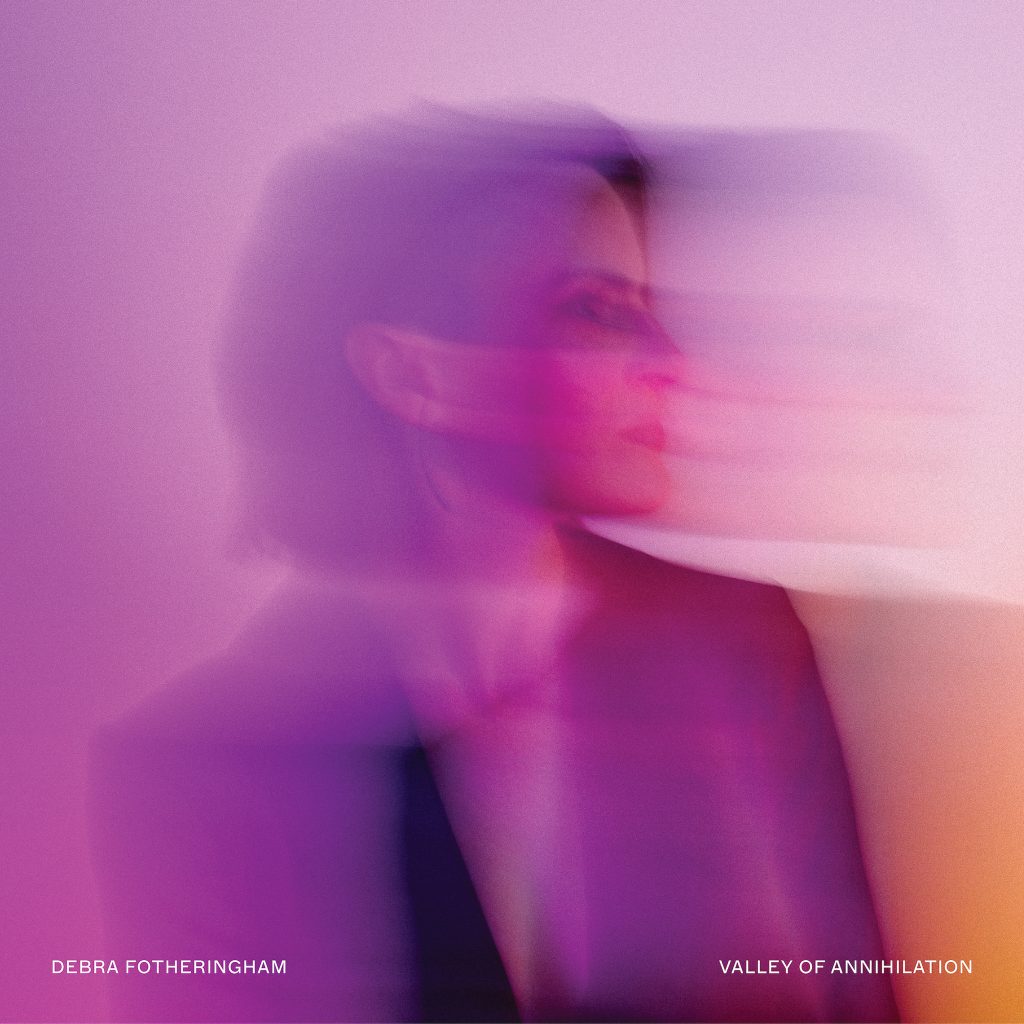
“In the autumn of 2023, Debra Fotheringham stood at a crossroads. She was living in the quiet hills of Vermont, in an old house tucked deep within acres of maple woods, a mile from the nearest neighbor. She and her husband of fifteen years had moved there seeking refuge from the chaos and anxiety that had gripped her hometown in Utah Valley during the COVID-19 pandemic—imagining a serene, country idyll. Instead, the isolation stripped away distractions and laid bare the fractures in a marriage already beginning to fray.
With the relationship crumbling, Debra returned alone to Utah, facing the daunting task of rebuilding a life from the ground up. For the first time in decades, she was on her own—untethered, uncertain, and wide open to possibility. Out of this upheaval, songs began to emerge: fragile at first, then fierce and unflinching.
Valley of Annihilation is the sound of that transformation. Across ten songs, Debra charts the terrain of heartbreak and rebirth, of learning to be tender with herself, to let go of ego, to open an armored heart to vulnerability and wonder. These are songs about love in all its forms—how it breaks us apart, and how it can gather the pieces and make us whole again.“
I’ve been able to listen to Valley of Annahilation prior to its release. The album has been on repeat since the first listen. I already have favorite songs that I listen to over and over. I’ll be curious to find out which of these songs you like best. It is, in my opinion, Fotheringham’s best collection of songs.
I had the opportunity to chat with Debra earlier this week. We discussed a variety of things that went into making this incredible album, live music, some of her favorite songs to cover, and more. When I began talking with Debra, I shared with her that the first time I had ever seen her live was at a concert following the 2016 election. It was a tribute to Bruce Springsteen’s album Born in the USA. I then shared that I saw my first-ever Lower Lights concert just weeks later. And noticed how versatile her voice was and that she was able to sing and perform in a variety of styles. I mentioned that I noticed that versatility on this album. I wondered if she intentionally varied in musical style or if that’s just how she is.
Debra Fotheringham: I guess that’s just how I am. I don’t know if I could pick a favorite genre, but I just like listening to everything and feeling inspired by anything that inspires me. I think what Scott Wiley, who is the producer, and I were trying to achieve was just like whatever served the song best.
Utah Concert Review: So tell me a little bit about your songwriting process. Is it lyrics first? Is it melody first? Or are you just sitting at a guitar or piano playing until something comes to you?
Debra Fotheringham: Usually, I start with some guitar riff and then I’ll start messing with melodies until I have something that feels like it resonates. And then I’ll start adding lyrics. I did things a little differently on at least some of these songs. Like “Rosie View” is one that I built in Logic first. Just built out the production and didn’t even have a melody or a lyric. Well, I had a melody. I didn’t have lyrics until I had almost fleshed out the whole demo. And then I put lyrics on it. We used a lot of that original demo in that song. Then Scott added a lot of magic touches. It was fun.
UCR: That’s Cool. Why was this the time for you to make a new album? I’m sure people have been clamoring for it for years. I know you’ve had some heavy life experiences since your last release. Did you feel like writing an album was a way to process and a source of healing from all of that? Or did you just feel like you wanted to make a new album, and here you have all this life experience to write about?
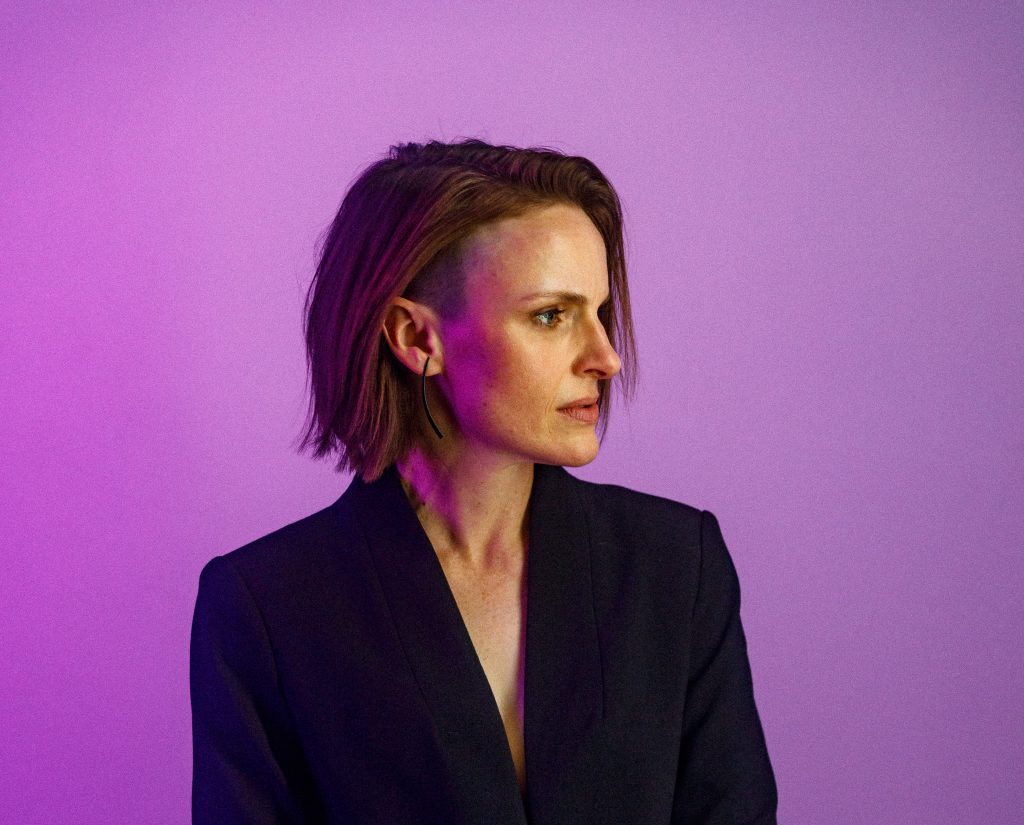
Debra Fotheringham: Well, I knew I wanted to do another one. And I tend to self-sabotage when it comes to having a regular songwriting schedule. But I had a friend who invited me to a songwriting group that she curates. It was like five or six songwriters. She’ll send out a prompt every week, and then you have to turn in a song every week. And if you don’t turn in a song, you get kicked out of the group.
UCR: Oh, Really?
Debra Fotheringham: The pressure’s on. Which was exactly what I needed. So I ended up writing like 30 or 40 songs. And then just picked the ones that I thought were the most cohesive and kind of told the story that I wanted to tell through the length of the record. That’s kind of how it came about.
UCR: I’m not a songwriter by any means. But whenever I’ve attempted to write, it always becomes autobiographical in some way. So I stop writing because the lyrics make me incredibly vulnerable. Is it difficult for you to put yourself out there? Or do you feel like the songs are masked enough to give a general idea of what you’re feeling, but not quite specific enough to feel fully exposed?
Debra Fotheringham: Well, I want it to be open enough that people can fit themselves in the song and not have it be so specific to my experience. However, a lot of them are inspired by personal experience because it’s how I process my emotions. I come from a family that was never very emotionally fluent. So this was kind of my way to work through a lot of that stuff as a kid and now to sort of figure out what I’m feeling and process it in a healthy way.
There are songs where I’m like, this person is probably going to know this is about them. I just don’t think I care. I think the honesty of it and the truthfulness of it are what I’m after. Mostly, I’ve had personal conversations with these people, and we’re in good standing. So it doesn’t feel like it’s going to drop a bomb or anything.
UCR: You kind of can’t care. It’s your story and how you’re expressing it. If you do too much self-editing, you’re limiting yourself and your art.
So, as you go through the songwriting process. How do you know a song is going in the right direction? Or at least the best direction for the song.
Debra Fotheringham: I wish there was a better way to say that it’s anything other than just a feeling. You feel like something feels right about it. Something is harmonious and you just want to keep working on it, or it’s interesting enough that you want to dive in and see what’s what else is in there. And I think it’s just feelings.
UCR: We hear these stories where songwriters write some of the biggest songs in history in like five minutes. And then we hear about other songs that take a year, or sometimes years, to complete. Did you have any songs on this album that just came to you quickly? Where they’re almost a complete song right away. And did you then have others that just took forever to get it right in your mind?
Debra Fotheringham: Yeah. Actually, “Bright Eyes”, I think, came out fully formed. I don’t think I changed much at all on that song from the first draft. A few word choices, but mostly that’s the same as the first draft. And then there’s some like “Hibernation” that I struggled with for almost a year on that one. I didn’t know where I wanted the second verse to go.
I didn’t know where I wanted the bridge to go. And actually, the day before I recorded, I sat down to do the demo. Then, like the little melodic line that’s in that song just appeared.
That’s kind of what made the song cohesive. And I wrote the bridge the day before the recording, too. And it was funny how having that deadline was like, oh, here it is. You’ve been struggling. But now you’ve got a deadline. You can’t be precious.
UCR: So when you take the songs to the studio and you’re working with Scott (Scott Wiley, owner of June Audio in Provo, Utah). Which, by the way, I just love the work that he does.
Debra Fotheringham: Me too. He’s a genius. And I don’t use that word lightly.
UCR: So when you’re working with him, is it a situation where he is more hands-off and you’re doing your thing? Or does he interject often to where it’s a collaboration?
Debra Fotheringham: It was a little bit of both. It was like real collaboration, where I would come in with an idea and a kind of mood that I wanted to achieve. And then we’d both work on the instrumentation and the vibe we wanted to go to. For every song we did, we made a demo first in the studio to capture a vibe.
So that when Aaron, the drummer, came in, there was already a mood for him to kind of achieve as he was laying down the drums. And a lot of the drum stuff on this record are a lot of Scott’s really cool ideas. I’m really like so in love with all the drums on it. But yeah, it was like a real collaboration. And a lot of the little magic moments are like amazing Scott Wiley moments. It was just it was a joy from start to finish to work on it with him.
UCR: So what is that feeling like when you finish a song or the album? When you listen to the finished product is it a satisfying feeling? Or do you still think about what kind of tinkering you could have still done?
Debra Fotheringham: Well, there’s like a whole process of where you’re getting the roughs and then you’re going through mixing. And there’s a lot of room for tweaking that whole process. Then by the time we were done mixing, it’s just like, yeah, I think we’re good.
If there’s anything that needed to be fixed, I don’t know what it is.
UCR: That’s got to be a satisfying feeling.
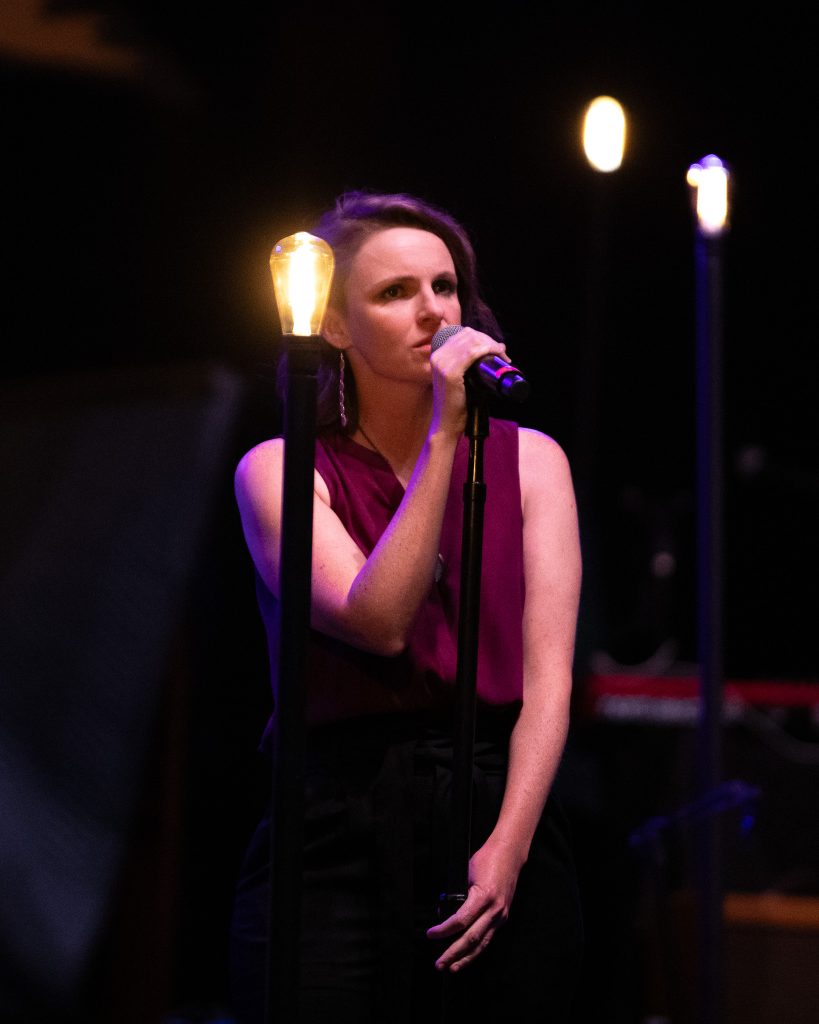
Debra Fotheringham: Yeah, for sure.
UCR: Do you have plans to do an album release show or anything like that?
Debra Fotheringham: On February 20, 2026, I’m doing what I’m going to call a vinyl release show. Hopefully, I’ll have vinyls by then. Libbie Linton from the band Mideau is releasing a solo album. We’re going to do a double album release at the State Room on February 20th.
UCR: Oh, perfect. After that, are you hoping to take it on the road?
Debra Fotheringham: Yeah, I’m scheming right now and doing some research and hopefully planning a tour.
UCR: How do you decide the order of the songs on your album? Is that something that happens as you go? Did you know early on what order you wanted the songs? Or does it happen at the end of the whole process?
Debra Fotheringham: I put a lot of thought into the order. I wanted to sort of move the listener through this thematic journey, starting with” Problem Child”, which is sort of this song about self-compassion. Start with that and then kind of move through the process of what I was experiencing into finally “Hibernation”, which is just an anthem about not being afraid to feel your feelings, even when they’re uncomfortable and hard. So with every song, it was very intentional. I don’t know how I’d say I picked other than it felt right, and it moved the album along in the ways that I wanted it to. And I feel like I landed on what felt good.
UCR: “Problem Child” is a great opener. And I love where “Protagonist” and “Rosy View” are positioned. They’re right in the sweet spot of the album. “Protagonist” is one of those songs where you almost can’t continue with the album until you listen to that song a few times in a row before you proceed.
I feel like on this album, you have found new and interesting spaces to explore your voice. Both in range and in the styling of your voice. I’ve noticed that whether you’re singing your own songs or covers, you seem to have an understanding of what your voice can do and how to perfectly place it within a song. Not everyone who can sing knows their voice. How did you come to know your voice?
Debra Fotheringham: Oh, okay. That’s a good question. I think being in The Lower Lights was huge for that, because I’ve historically been very shy and not had a lot of self-confidence. But being in those sessions with those guys, they were such champions of me, specifically.
They were always pushing me to try new things, and I feel like my growth as a vocalist was exponential just by being in there and having them believe in me and throw me challenges that I didn’t think I could do. But they were like, Of course you can do this. And just that belief helped me get there. I think that was huge for me as a vocalist, just being in that band.
Then specifically with this album, I wanted to stretch myself vocally in ways I hadn’t before, in different registers and different ways of singing. And so I chose really intentional ways of singing on each song, because I just wanted to push myself a little.
UCR: You not only perform with The Lower Lights, but you’ve taken part in a variety of tribute shows. Do you have a favorite one that you’ve done?
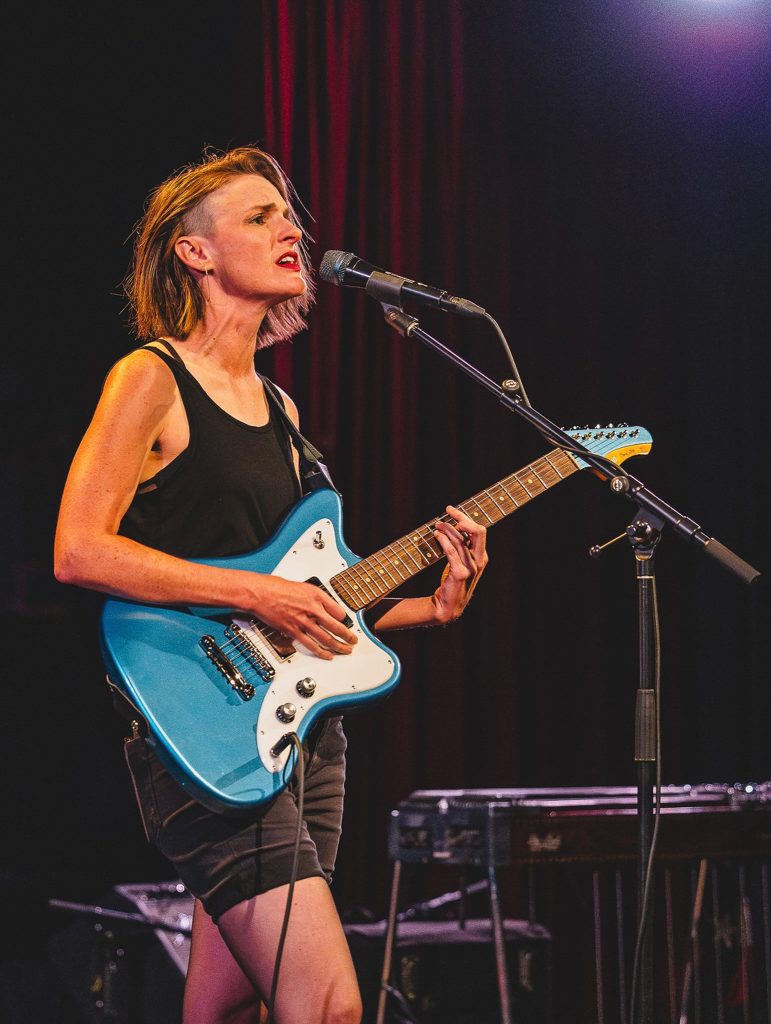
Debra Fotheringham: Oh, I love the Tom Petty ones. I wasn’t really a huge Tom Petty fan before we started doing these. Then, as I learned these songs, I became a huge Tom Petty fan because the songs are really simple, but all the devil is in the details with these songs, like in the arrangement. Some of them are just like three chords throughout the whole thing, and it doesn’t even change in the chorus. But the way it’s arranged is so interesting, and just the details in his songwriting is exciting to me.
UCR: I’m so glad you said that because those Tom Petty tributes have been my favorite. They were so good, and you did a great job in them.
Debra Fotheringham: Awesome, thanks. Appreciate that.
UCR: Final question. Do you have a favorite song to cover?
Debra Fotheringham: I cover Dolly Parton a lot when I’m just playing out.
UCR: You covered Dolly Parton on the Blue Heart Revue album.
Debra Fotheringham: Oh yeah. That’s right. I do a cover of a Lisa Hannigan song right now that I really like.
UCR: Which one?
Debra Fotheringham: “Undertow”.
UCR: I’ll have to check it out. Thank you so much, Debra, for your time! I’m so excited for this album.
Debra Fotheringham: Cool. Thank you!
* * * * * *
Valley of Annihilation is out on October 24, 2025, wherever you get music. As I mentioned at the beginning, I really have enjoyed this album, and I believe you will too. I’m excited to see where these songs will take Debra. I think great things are in store for her!
For more information on Valley of Annihilation, Debra Fotheringham, or her other releases, go to www.debrafotheringham.com
Find and Follow Debra Fotheringham on social media! Links below!
https://instagram.com/debfotheringham
https://youtube.com/debfotheringham
https://www.tiktok.com/@debrafotheringham
https://facebook.com/debfotheringhammusic
